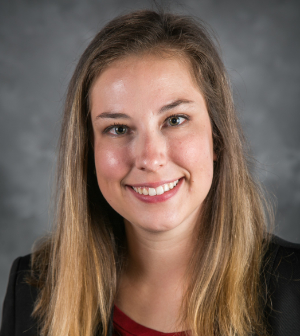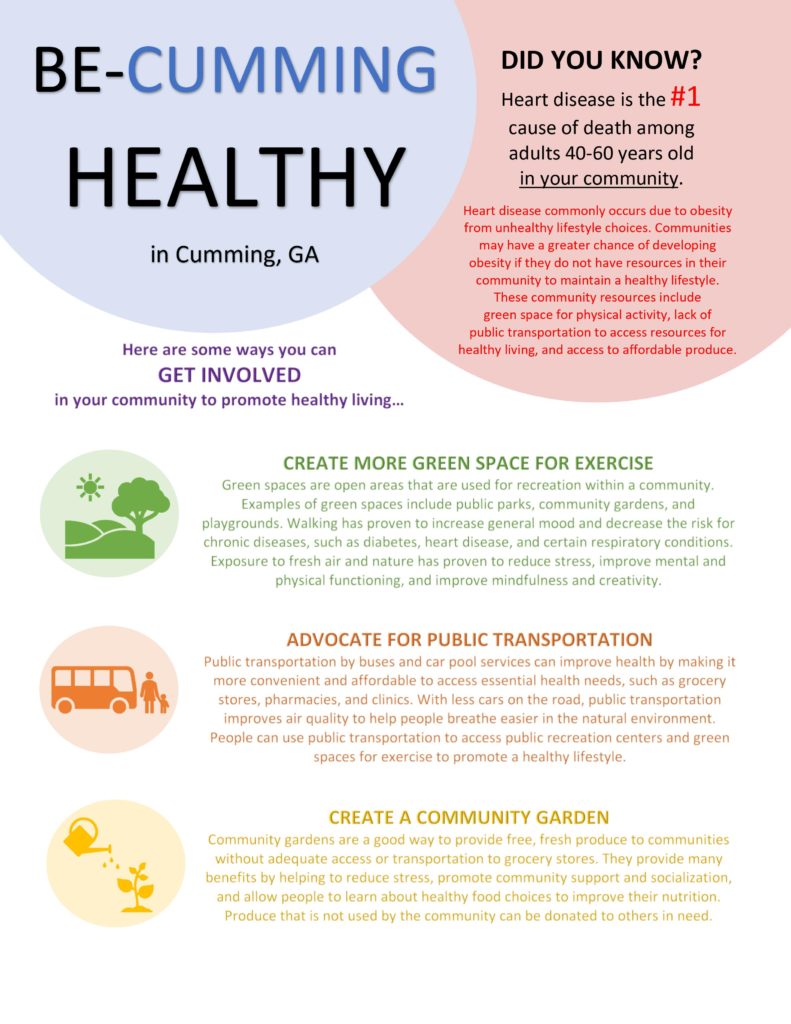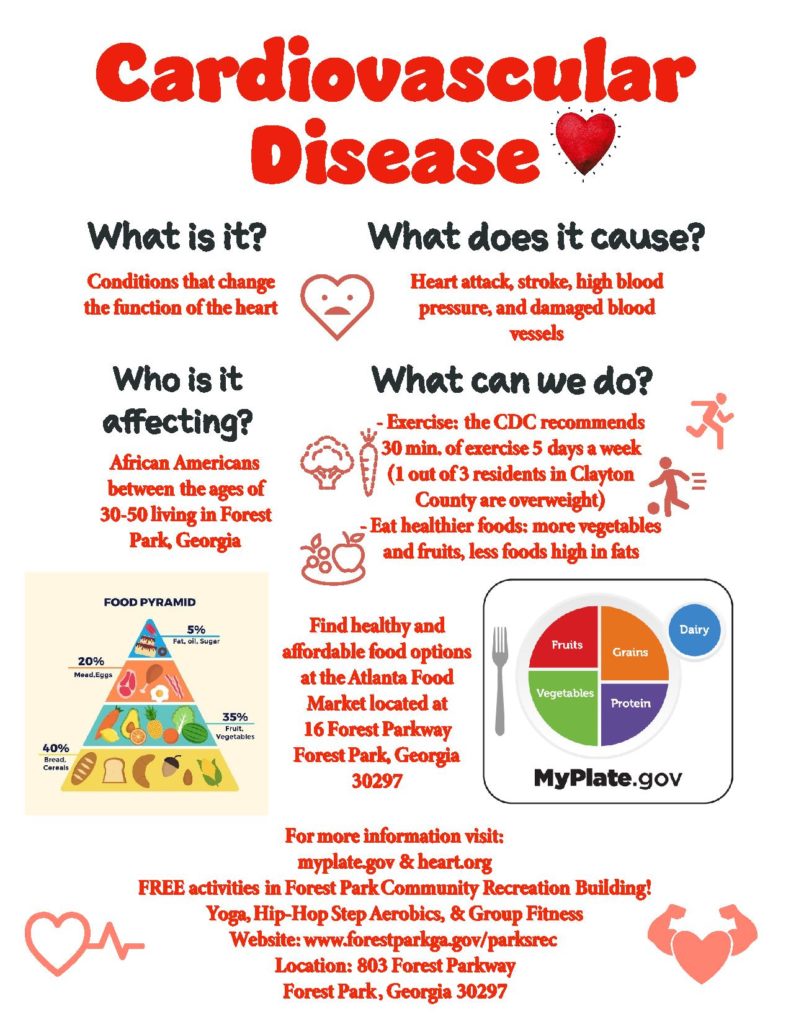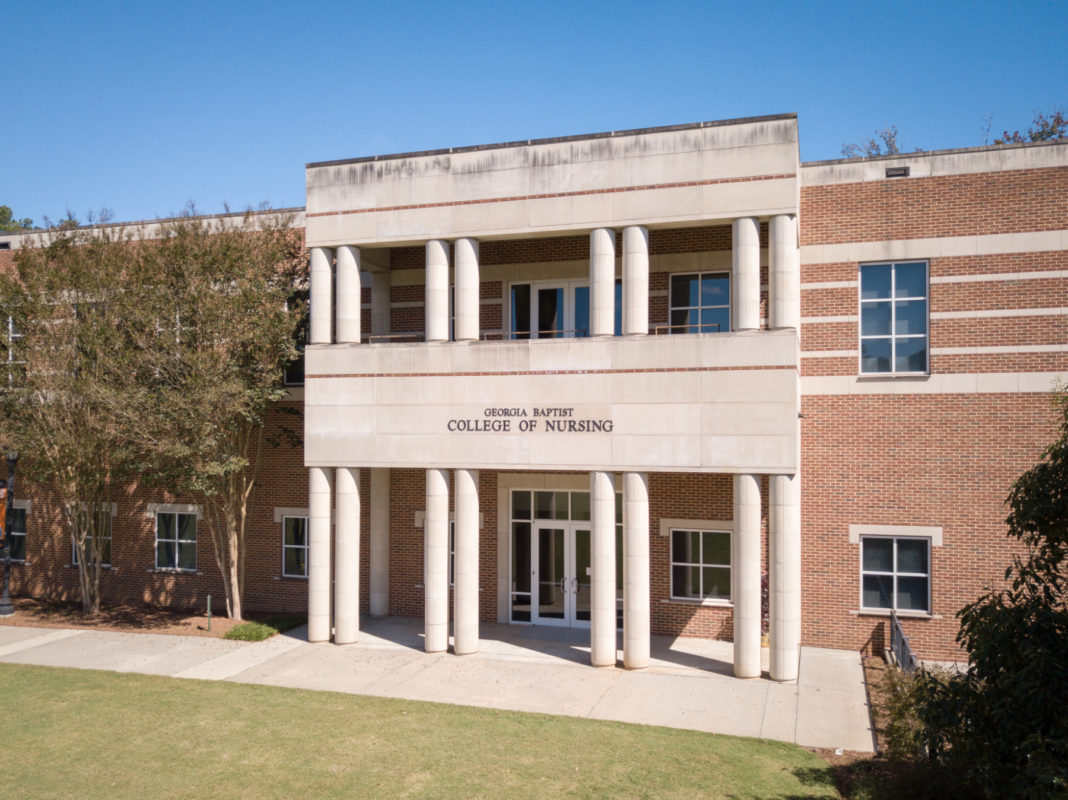Mercer University nursing students got out of the classroom and into local communities this spring to educate residents on health-related issues.
Students were charged with identifying and learning about a community-specific problem, brainstorming preventative measures that would mitigate the issue, and providing educational outreach to a target population.

“Their goal was they had to go into the community, assess the community, and try to figure out what’s going on in that community,” said Dr. Katie McKelvy, clinical assistant professor in the Georgia Baptist College of Nursing. “What were some things that the people who lived there were really dealing with that were issues that if they were brought to their attention, they could work to try to change?”
Working in groups of five, students fanned out across 17 Metro Atlanta cities for the service-learning project, which was part of Dr. McKelvy’s NUR 409: Population Health Nursing class. The course focuses on promoting health from the individual level to the global community through knowledge and use of public health principles.
First, students assessed their assigned communities. They did this by researching area statistics including demographics and culture, completing a questionnaire while driving through the communities, and talking to people who lived there.
Then, they used that information to determine a problem, identify a target population and come up with realistic solutions.
For the educational outreach part of the project, students created flyers and then handed them out in their assigned communities. Funding for the flyers was provided by Research That Reaches Out through the Center for Engaged Learning.

Anthony Cason, who graduated in May with a Bachelor of Science in Nursing, and his group were assigned to the city of Cumming in Forsyth County, which has the highest median income in Georgia. In general, its residents were of a high socioeconomic status, so they didn’t appear to lack resources that contribute to a healthy lifestyle.
“It was kind of hard identifying a problem, and we had to do additional digging and do community assessments,” he said.
When students visited the community, they noticed a high number of fast-food restaurants and a lack of sidewalks and greenspace. Their research found that Cummings’ leading cause of death among adults ages 40-60 was heart disease, Cason said.
“That could be linked to the bad food and lack of exercise and probably a lack of knowledge,” he said.
His group created a flyer that offered three ways the community could work to combat heart disease: creating more green space for exercise, advocating for public transportation and planting a community garden.
“What I liked about the project was being able to spread awareness to the community because sometimes we live in communities where we really don’t know too much about what’s going on in terms of health conditions or lacking resources,” said Cason, who will start work in July as a nurse in the cardiovascular intensive care unit at Emory Saint Joseph’s Hospital in Atlanta.

Terrance Wynn, who graduated in May with a Bachelor of Science in Nursing, and his group were assigned to the city of Forest Park. In addition to completing online research and visiting the community, his group talked with an epidemiologist in Clayton County, where Forest Park is located.
“We found that in that area, one in three were considered obese. So, obesity was a large issue there, but the bigger problem was cardiovascular disease and death,” Wynn said. “So that was the main problem, and one of the main contributors was obesity.”
His group targeted Black men between the ages of 30 and 50 and created an educational flyer that included the data and possible interventions.
“We went back into the community, and we handed the flyers out to people and had brief conversations,” he said. “People are more receptive to learning about issues than you’d probably give them credit for.”
The project highlighted how nurses can educate their patients and get involved politically to combat health issues on a greater scale, said Wynn, who will start work in July as a nurse in the pediatric intensive care unit at Children’s Egleston Hospital in Atlanta.
“Real change can be effected within a small community, and if it’s successful there, then hopefully you can move that same model to larger communities,” he said.










